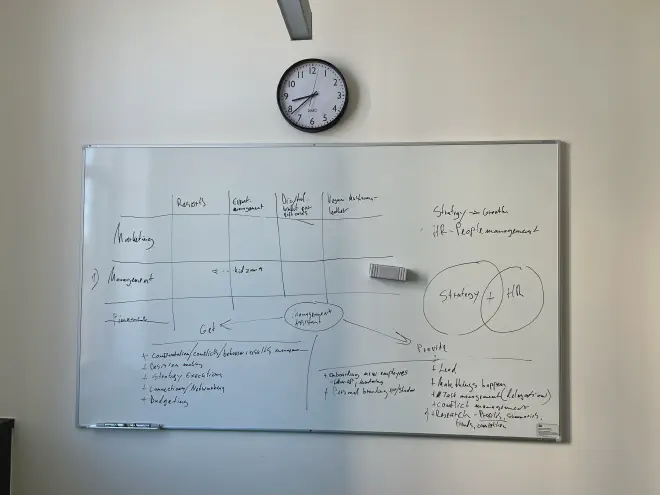Where are you aiming?

Table of Contents
Start by thinking about all the areas of your interest and where you would like to develop. What do you envision as your future domain in your career? You can get inspired by reviewing organizations’ charts and reviewing role models on the internet. Mind that titles may differ in organizations. One trick is to extend your view beyond familiar departments.
Your task is to write down every job that speaks your soul and seems a viable option to begin your career.
What skills and capabilities do you already have?
Secondly, list all your projects, summer jobs, and side hustles. Whatever you have done. Leave aside your imposter syndrome. Everything is valuable, and you can never predict what interests others. And this must be an authentic experience you can share as stories while being interviewed. These experiences have to be supported with evidence like reviews, designs, commits in repositories, and case studies.
Have this inventory as a conversation with someone. You can never be sure when the imposter syndrome creeps in, or you are blinded by the familiarity of your life.
Your task is to get as many skills on the paper/screen/whiteboard as possible.
How can you relate your dreams with your capabilities?
You can look deeper into opportunities as you have listed all interesting positions, skills, and capabilities with something to show or tell.
- Arrange interesting positions on the vertical axis and previous experiences on the horizontal axis.
- Go project by project and write to each crossing cell. Try to find connections and relationships for each cell. And be honest, if there is nothing related, mark it down.
| Interest / Experience | School project | Side hustle |
|---|---|---|
| Management | I led the project, defined the scope, and managed the team and daily operations. | Planned tasks and managed deliveries. |
| Marketing | Not my responsibility. | Managed social media, creating content and automated processes |
Plan your next steps
You can notice patterns. Some interesting positions have more relatable experiences, skills, and evidence. In the short-term perspective, these are your best shots.
If you have interesting positions which do not have enough evidence, it is a question of your desire. You can see and research additional info on the needed skills and capabilities for these positions. In the long term, you can deliberately look and create opportunities to attain these.
And the most crucial question. Does your CV or profile on LinkedIn reflect all these experiences, skills, positions, and stories? Make sure to update your profile to be relatable, relevant and inspiring.